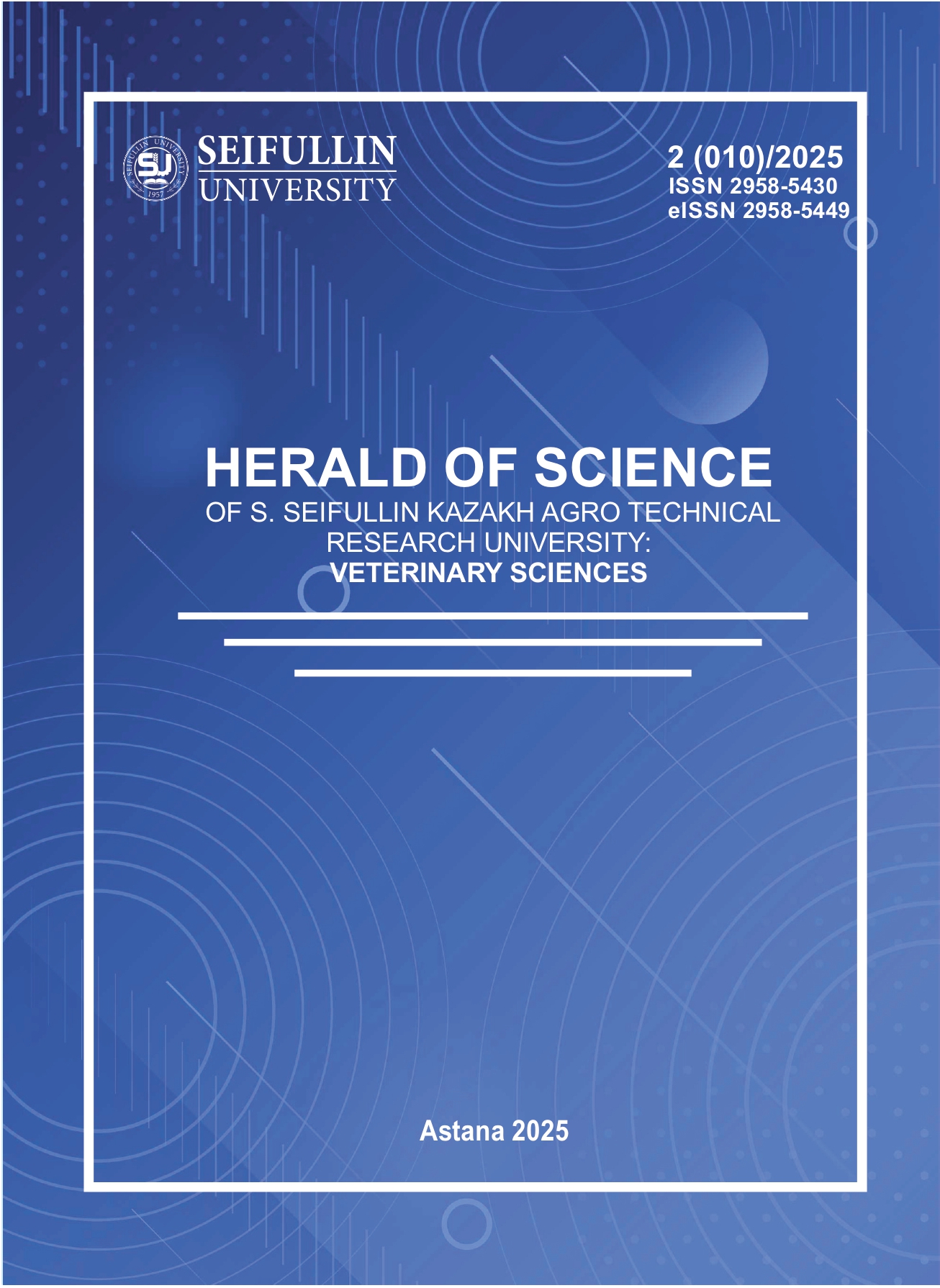Live Turkey Herpesvirus vaccine against Marek’s Disease: development, stabilization, and immunobiological evaluation
DOI:
https://doi.org/10.51452/kazatuvc.2025.2(010).1898Keywords:
chicken embryo fibroblasts; immunogenicity; live vaccine; Marek’s disease; turkey herpesvirus.Abstract
Background and Aim. Marek’s disease (MD) is a highly contagious and economically significant viral infection of poultry, caused by Marek’s disease virus (MDV), an alphaherpesvirus that induces lymphomas, paralysis, and immunosuppression in chickens. Kazakhstan currently lacks a domestically produced MD vaccine, resulting in dependence on imports and logistical challenges. This study aimed to develop and evaluate a national live vaccine against MD using a cloned strain of turkey herpesvirus (HVT, strain AV-0007), with optimized production and preservation technologies.
Materials and Methods. The AV-0007 strain was propagated in chicken embryo fibroblast (CEF) cultures using stationary, roller, and suspension cultivation methods. Virus yields were optimized by adjusting MOI, nutrient media, and harvest times. Stabilizing media for cryopreservation and freezedrying were formulated. Experimental vaccine preparations in both forms were assessed for sterility, safety, biological activity, and immunogenicity in one-day old chickens. Virus titers were measured using the focus forming unit (FFU50) method, and immunogenicity was evaluated by virus neutralization tests.
Results. Virus titers exceeded 10⁶ FFU50/cm³ across optimized cultivation methods. Cryopreserved and freeze dried vaccines preserved high viral activity after stabilization and storage. Both forms met international standards for sterility and were non-pathogenic in chicks even at 10× immunizing doses. Immunized birds developed virus neutralizing antibodies with titers ranging from 1.67 to 2.33 log FFU50, indicating strong immunogenicity and protective potential.
Conclusion. The AV-0007-based vaccine formulations demonstrated safety, stability, and high immunogenicity. The study confirms the feasibility of producing a domestic Marek’s disease vaccine in Kazakhstan and provides a foundation for the local development of poultry vaccines aligned with international quality standards.

